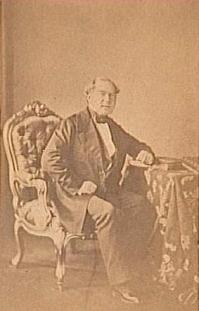Internationalization of the Danube River
[1] In 1616 an Austro-Turkish treaty was signed in Belgrade wherein the Austrians were granted the right to navigate the middle and lower Danube, at that time under the control of the Ottoman Empire.
[2] The Treaty of Adrianople, ending the Russo-Turkish War (1828–29), and signed on September 14, 1829, between Russia and the Ottoman Empire, provided a legal basis for excluding all foreign ships from the river delta.
Patrick Maxwell Stewart told his fellows on April 20: British enterprise has found its way to these [Danubian] provinces; and already the jealous power of Russia has assailed to obstruct its success.
Russia has dared to offer insult to England by laying hands upon British shipping, and demanding tribute at the mouth of the Danube.
[3]: 627 In 1840, Russia agreed in a treaty signed with Austria at St. Petersburg to keep the Sulina Channel open; for this purpose it would be allowed to tax vessels entering the river.
"[6] Another Englishman wrote in 1854 that the fertility of Moldavia and Wallachia was "not a mere geographical fact, but a subject fraught with the utmost importance; for the size of our [British] labourer's loaves varies with the depth of the water on the bar of the Danube.
"[5] There is, perhaps, no instance in which the seemingly tortuous, yet ever steadily aggressive and grasping character of Russian policy can be better marked than in her conduct at the Sulina mouth of the Danube.
[7] Edward D. Krehbiel, writing in 1918, observed that Russia had probably been "aggravating the already bad conditions for the purpose of hindering commerce on the Danube and increasing that of Odessa.
In September 1850, Charles Cunningham, British vice-consul at Galatz, Romania, wrote that "the different nations interested in the navigation of the Danube should name commissioners (as seems to be done on the Rhine), and the Commission [should] .
"[10] In 1851 one English journalist wrote that "a commission might be named by the governments connected with the trade, in order that the respective commissioners might watch over the interests of the shipping of their country, as exists on the Rhine.
[11]On December 28, 1854, during the Crimean War (France, Britain, Sardinia, and Turkey versus the Russian Empire), the allies sent to Russia a note urging the internationalization of the river as one of the bases for a peace treaty: .
In every case the free navigation of the Danube could not be secured if it be not placed under the control of a syndical authority, invested with the powers necessary to destroy the obstructions existing at the mouths of the river, or which may hereafter be formed there.
[12]On March 15, 1855, representatives of five monarchies gathered around a table in Vienna, the capital of the Austrian Empire in an attempt to end the bloody war in the Crimea.
Later, the negotiators were reinforced by the arrival of Foreign Ministers Drouyn de Lhuys of France and Mehmed Emin Âli Pasha of the Ottoman Empire.
[13] Prince Gortschakoff stipulated that navigation should be free and that Russia favored an international control agency, but he objected to the use of the phrase syndical authority (syndicat in French) "because it was vague and new.
The victors, led by Britain and Austria, excluded Russia from the "River-bordering commission" by the simple expedient of rolling back its borders from the Danube banks in favor of Turkey.
[17] Britain was winning in its attempt to hobble Russia, and the creation of the European Danube Commission was successful in "postponing a showdown for another ninety years.
Professor John C. Campbell wrote in 1949 that the commission became "a symbol and sentinel of the political interest of the West in preserving Southeastern Europe and Turkey from Russian domination.
"[19] The European Commission of the Danube, with members Great Britain, Austria, France, Prussia, Russia, Sardinia and Turkey, was established on a supposedly temporary basis by the Treaty of Paris in 1856 but, as The Times of London said, the body became a "striking example of the durability of the provisional," because it was never dissolved.





